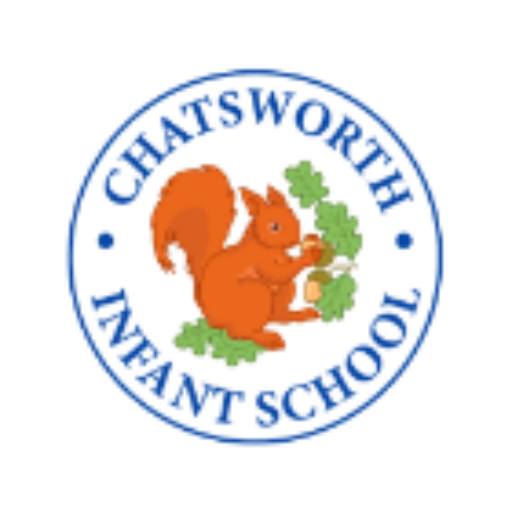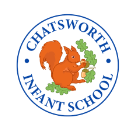Home | Learning | Curriculum
Curriculum
Home | Learning | Curriculum
Curriculum
Safe
Happy
Learning
At Chatsworth Infant School, pupils’ learning is at the centre of all we do. Our broad and balanced curriculum offer pupils opportunities to grow as individuals as well as learners by exposing them to a range of learning experiences celebrating the world around them. This includes ensuring a wide diversity of cultures and backgrounds are reflected in the resources and content that is taught as well as an awareness of the international matters that are prevalent in today’s world. Through a combination of learning techniques, we ensure pupils enjoy learning and feel prepared for life after school as them embark on their learning journey from Nursery into adulthood. Our core purpose is to ensure our curriculum gives our pupils a strong foundation in the basic skills thereby improving outcomes for all learners. With a clear focus on the early acquisition of early number and reading skills, including phonics/spelling, number bonds and times tables, it gives our children the necessary skills they need to access a wider curriculum. We recognise that pupils should be challenged in their schooling; learning from failures and celebrating successes. We intend for our curriculum to be empowering, enabling pupils to develop their interpersonal skills, creativity and independence.
We are ambitious for our children. We want them to leave our school feeling proud of themselves and confident that they can achieve great things in their lives.
Chatsworth Infant School is proud to serve our community – we are proud to be part of the community and recognise our responsibility to ensure that our pupils leave our school with the skills, confidence and empathy to be successful in life; ready to make great contributions to the communities they will be part of in the future.
The Pioneer Passport
We are passionate in our drive in ensuring that children are exposed to a range of opportunities and experiences in their time in Burnt Oak Junior School. The Pioneer Pupil Passport allows us to map key cultural, sporting, and skill based experiences through the children’s junior school time.
The passport consists of different activities aimed at enriching learning and life experiences beyond the curriculum, whilst with us.
We are trying to make as many memories for our children before the age of 11.
Experiences linked with the passport are identified on the curriculum map.

Curriculum map
The Pioneer Academy Curriculum
Intent
The curriculum in TPA schools is designed to inspire and motivate children. Our aim is for every child to experience ‘an extraordinary school day’ every day. We place children at the heart of the learning process through a bespoke ‘Teaching and Learning Model.’ The Model, which is rooted firmly in research and analysis of effective learning and teaching, translates the Trust’s Expectations into classroom practice. This Model has been developed and embedded to provide consistency and continuity for all children.
We use the International Primary Curriculum (IPC) as a framework for learning. IPC provides a clear, thematic approach which ensures coverage of the National Curriculum. The thematic approach links well with our intent to make all learning exciting, active and meaningful for all our children. Learning with IPC also includes an international dimension, helping children to connect their learning to where they are living now, as well as looking at learning from the perspective of people in other countries.
The Pioneer Academy is committed to the highest quality teaching across the whole curriculum and promotes the use of specialist teachers to facilitate this. We currently have specialist teachers for PE, Art, Music, Computing and MfL teaching across our schools.
Implementation
The IPC is used from Year 1 to Year 6 as the core framework for learning in the majority of subjects.
The White Rose Mathematics scheme, supplemented by additional resources, is used for teaching and learning in Mathematics. This was selected for it’s accessibility and strong approach to mastery.
Little Wandle Phonics is used across the trust and has been selected for the level of structure and resourcing available.
In EYFS a thematic approach is used and this is being developed to link with the IPC units in our long-term plan.
Our teaching and learning model is designed and implemented in such a way that it builds on prior knowledge and skills and lays the foundation for future learning. Lessons are designed to be engaging and challenging with learners actively involved.
Our curriculum planning has been designed so that subjects are taught independently and interdependently and supplemented by a wide range of opportunities and enrichment activities which allow for cross curricular learning. This enables learners to see the ‘Big Picture’ of their learning and to make connections both through and across different subjects.
Progression Maps for each subject identify the knowledge, skills, understanding and vocabulary that pupils are expected to master each year in each subject and unit of learning. These have been used to develop ‘Pacer’ documents for each unit of learning which identify the learning sequence through key learning questions. The pacer douments ensure the national curriculum and our own bespoke learning questions are organised and taught in a progressive order so knowledge, skills and understanding are built upon year on year.
Subject leaders work in partnership across the schools and within a core framework to ensure consistency and continued development of each subject.
Through subject forums subject leaders across the Academy share planning, practice and resources, building and refining a central subject bank which is accessed by all teachers. This bank is used to drive consistency and reduce workload for our teachers and secure high quality teaching and learning in every subject.
Impact
We review the impact of our curriculum continuously in a variety of different ways. We monitor how effectively our curriculum and enrichment provision provides opportunities for each unique pupil to reach their full potential.
We look at the quality and breadth of work seen in learner’s books, online and in the learning environment, pupil voice discussions, outcomes of assessments and quality of teaching and learning through learning walks. All of these tools help us assess the consistency, impact and relevance of our curriculum.
Monitoring and Evaluation
Regional Directors and central team members monitor whether the school is complying with TPA teaching and learning expectations through:
- Learning Walks with members of the Senior Leadership Team
- Meetings with subject leaders to support and challenge them
- Evaluation meetings such as Safe, Happy Learning Visits to hold senior leaders to account
Senior Leaders and Subject Leaders monitor the way the curriculum is taught throughout the school in the following ways:
- Book Looks (Coverage/Breadth/Progression)
- Book Looks (Quality of work)
- Learning Environment Looks
- Pupil Voice Discussions
- Learning & Teaching walks followed by developmental coaching
- Analysing teacher assessment of their subject across the school
Pupil Outcomes
At TPA, learning is at the heart of all we do so assessment is used to shape future learning. It is not excessive or onerous and forms part of the day to day working practices of the classroom. Teachers ensure that pupils embed key concepts in their long term memory. Key skills and objectives for curriculum areas are revisited throughout the year and applied in different contexts. We also use summative assessments to support the teacher’s overall assessment in these subjects.
The impact of our curriculum is also measured by assessment procedures that allow us to measure outcomes against schools nationally.
We constantly review our assessment process so it has the highest impact on improving learning.
Children take part in quizzes, used frequently, to measure progress. Teachers use ‘Knowledge Checks’ during lessons to ensure children can recall facts and information. A wide range of strategies such as questioning, cold calling and other classroom strategies are also used to assess knowledge.
We recognise that understanding develops over a period of time. ‘Big Picture Questions’ are shared at the beginning of a unit. These questions/statements are referred to throughout the topic. Children record their initial, developing and final responses to these questions/statements so that the development of their understanding is recorded.

